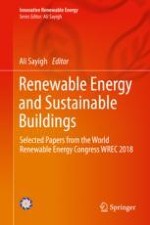2020 | OriginalPaper | Chapter
2. Energy Policies at Crossroads: Will Europe’s 2030 Targets and Framework be in Line with the Paris Climate Agreement?
Author : Rainer Hinrichs-Rahlwes
Published in: Renewable Energy and Sustainable Buildings
Publisher: Springer International Publishing
Activate our intelligent search to find suitable subject content or patents.
Select sections of text to find matching patents with Artificial Intelligence. powered by
Select sections of text to find additional relevant content using AI-assisted search. powered by
